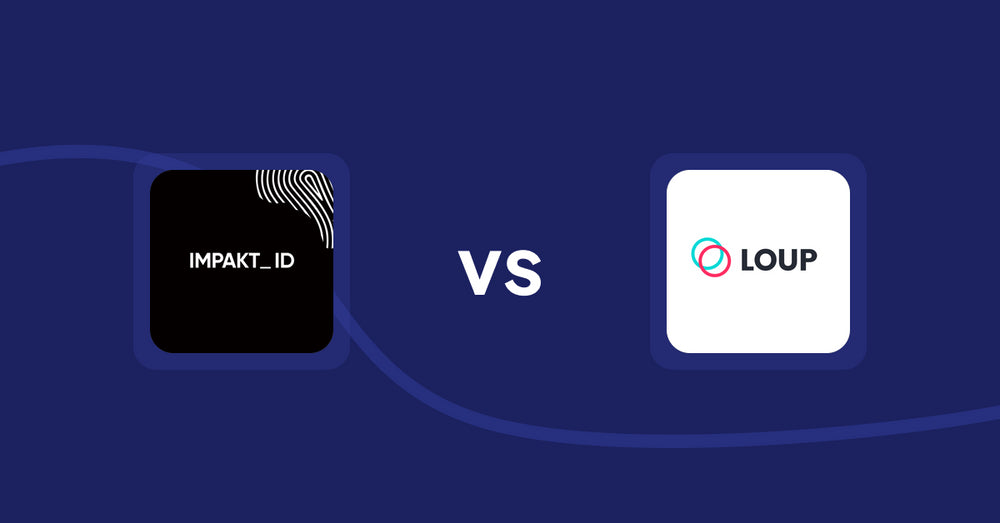Shopify Metafield Apps: Spec & Compare vs MetaMind

Table of Contents
- Introduction
- How Does Spec & Compare Work?
- How Does MetaMind Work?
- How Much Does Spec & Compare Cost?
- How Much Does MetaMind Cost?
- Cost Analysis: Spec & Compare vs. MetaMind
- User Reviews & Customer Support Insights
- Integration and Compatibility Comparison
- Conclusion
Introduction
In the digital retail landscape, the effective use of Metafields can significantly transform a customer's shopping experience. These customizable data fields enhance product details, streamline navigation, and assist in decision-making. Metafield apps serve as essential tools for merchants seeking to leverage this functionality, ultimately boosting engagement and conversion rates.
In this article, we will delve into two prominent Metafield apps available on Shopify: Spec & Compare and MetaMind. We will explore their capabilities, ease of integration, and their overall impact on enhancing product offerings. By evaluating these two solutions against one another, you’ll see why Spec & Compare stands out as a more comprehensive option.
How Does Spec & Compare Work?
Spec & Compare provides an intuitive platform for Shopify merchants to create detailed specification and comparison tables for their products. This app is designed with the goal of improving customer understanding of products, leading to higher conversion rates.
The main features of Spec & Compare include:
-
Unlimited Attribute Creation: Merchants can create extensive specification tables that facilitate easy comparison of their products. This flexibility helps businesses to highlight unique selling points.
-
Dynamic Comparisons: The app ignites a seamless experience by allowing comparisons on both product and collection pages. This feature helps customers make informed decisions without navigating away from their current page.
-
Metafields Integration: Spec & Compare supports existing metafields and metaobjects, enabling businesses to utilize the data they have already collected.
-
Customization Options: The tables can be tailored to align with a brand's visual identity, promoting a cohesive shopping experience.
-
Multi-Language Support: Merchants with international customers benefit from the app’s ability to display information in multiple languages, which enhances accessibility.
These features are crucial for businesses of varying sizes. Startups may utilize the basic product attributes to enter the market, while small to medium enterprises can leverage the dynamic comparisons to differentiate their products from competitors. Large enterprises, on the other hand, can take full advantage of the customization and integration options to create a robust online presence.
Consider a hypothetical scenario: A company launches a new line of fitness equipment. By using Spec & Compare, they can create personalized, detailed comparison charts that showcase key differences between their products, such as material quality, dimensions, and warranty information. This not only assists potential buyers in making informed choices but also significantly improves the company’s chances of converting visits into sales.
How Does MetaMind Work?
MetaMind offers a different angle on the Metafield utility, focusing on AI-driven product tagging. This approach automates the process, promising efficiency and enhancing product organization throughout the store.
The principal features of MetaMind include:
-
AI-Generated Tagging: MetaMind automates the creation of metafields, tagging products and variations to improve visibility and searchability which enhances both user experience and SEO.
-
Multilingual Support: With support for both English and Spanish, MetaMind accommodates a broader range of customers.
-
Control Over Metafields: Users are granted the ability to edit or remove the metafields created by the app, thus maintaining control over product data.
-
Automatic Updates: With ongoing updates for new or updated products and variations, MetaMind ensures that tagging remains current and relevant without additional effort.
While MetaMind’s automated capabilities can save time for merchants managing many products, they may lack the depth and customization offered by Spec & Compare. Spec & Compare empowers businesses to present information in a visually compelling format, which is pivotal for customer engagement.
Startups might find MetaMind appealing for its ease of use, while growing businesses could struggle with how to best present their products. Large enterprises may lean toward Spec & Compare for its comprehensive coverage and visually engaging presentation of information.
How Much Does Spec & Compare Cost?
Understanding the financial implications of Metafield apps is vital for any business. Cost-effective solutions enable merchants to optimize their functionalities without incurring prohibitive expenses.
Spec & Compare offers two pricing tiers:
-
Starter Plan: $5.99/month
- Features: This plan includes basic specification and comparison tables, support for metafields, branding customization, and multi-language support.
- Limitations: It lacks dynamic comparison features.
- Target Audience: This option is best suited for small startups or businesses exploring the utilization of Metafields without significant investment.
- Additional Costs: No hidden fees.
-
Pro Plan: $8.99/month
- Features: It combines everything in the Starter plan and adds dynamic comparison, including both collection and product pages, as well as variant table comparisons.
- Limitations: None noted, but advanced features may be underutilized by smaller businesses.
- Target Audience: Ideal for small to medium businesses looking to grow their offerings and engage customers effectively.
- Additional Costs: None identified.
It is important to note that you can always reach out to our team, and we can create a custom pricing plan to suit your needs and your budget. Schedule a call via this link, and we’ll come up with the best solution for you and your business.
How Much Does MetaMind Cost?
MetaMind operates on a unique pricing model that is also worth analyzing for businesses keen on maintaining budget-friendly operations.
-
Free to Install: The app is free to install and offers 1000 credits for $29.99, where each tagging costs 10 credits.
- Features: The AI-driven tagging requires a self-managed credit system, autogenerating metafields to streamline product setups.
- Limitations: The costs can escalate quickly with increased product tags, making the service potentially expensive for larger inventories.
- Target Audience: It can be appealing to startups that predominantly manage a smaller number of products. However, larger operations may find tagging costs prohibitive.
- Additional Costs: Extra credits can incur added fees over time.
Cost Analysis: Spec & Compare vs. MetaMind
When comparing the pricing structures of Spec & Compare and MetaMind, Spec & Compare presents a more substantial value proposition. The monthly fees for Spec & Compare are fixed and predictable, enabling businesses to plan budgets efficiently.
MetaMind's cost model, while enticing for smaller installations, risks accumulating expenses as product counts increase. Overall, Spec & Compare’s structured pricing allows for scalability without the uncertainty of credit utilization.
Additionally, Spec & Compare is often more appealing for its comprehensive features and customization options, suggesting it may provide better cost efficiency for various operational scales.
User Reviews & Customer Support Insights
Is Spec & Compare good?
Spec & Compare boasts an impressive 5-star rating from 64 reviews. Users frequently highlight its user-friendly design, effectiveness in comparing products, and customization capabilities. The app significantly enhances the decision-making process for customers, reflecting positively on conversion rates.Is MetaMind good?
MetaMind also holds a 5-star rating, albeit from just 3 reviews. While this suggests early positive feedback, the limited number of reviews may indicate less user engagement compared to Spec & Compare. Users likely appreciate the app’s automation in tagging but may find it lacking in visual presentation, which is essential in e-commerce.Customer support is always an essential aspect of any app. Responsive and helpful support can greatly influence customer ratings. While there is no specific mention of customer support regarding MetaMind, Spec & Compare's broader user base indicates that it may have more resources dedicated to customer service.
User Preference: Spec & Compare or MetaMind?
When comparing average ratings, it’s clear that Spec & Compare has garnered a much larger number of reviews and thus an implied level of user satisfaction that speaks to its reliability. Users gravitate towards Spec & Compare; the features that prioritize customer experience and informed decision-making seem to resonate more with businesses and their customers.These differences in user preferences can often tie back to the extensive customization capabilities in Spec & Compare compared to the straightforward but less engaging approach of MetaMind.
Integration and Compatibility Comparison
Spec & Compare Integrations
Spec & Compare is natively compatible with the Online Store 2.0 editor, ensuring that it doesn’t hinder performance and offers seamless user experiences across devices. Integration is straightforward, working within Shopify’s ecosystem to enhance product presentation.MetaMind Integrations:
MetaMind lacks specific integrations that might be beneficial for users seeking an expansive toolkit. While it focuses on automating tagging, potential users might find this constraining—especially for those looking for additional functionalities that come from integrations with other platforms for thorough data management.Conclusion
In conclusion, both Spec & Compare and MetaMind provide valuable solutions for Shopify merchants looking to optimize their use of Metafields. However, it is evident that Spec & Compare offers a more user-friendly design, a robust feature set, and a manageable pricing structure. The app stands out with its excellent rating and the flexibility it provides to businesses of various sizes. While MetaMind offers automated tagging, it falls short in areas of visual engagement and comprehensive customer experience. For those looking to truly enhance their e-commerce strategy, Spec & Compare emerges as the superior choice, ensuring both value and effectiveness in driving conversions and enriching customer interactions.
Still Searching for the Perfect Customization Solution?
Stop searching and start thriving with Accentuate Custom Fields! This powerful metafield management app supercharges Shopify’s native features, giving you the tools to create a truly personalized customer experience.
Why Choose Accentuate Custom Fields?
- Advanced Customization: Unlimited field definitions, logical grouping, and custom layouts make your store one-of-a-kind.
- Enhanced Editor Experience: Effortlessly edit variant metafields, use advanced HTML and markdown editors, and sync field definitions between stores.
- Flexible Management: Import/export capabilities, automatic tagging, and comprehensive support for Metaobjects and versioning.
- 24/7 Support: If you have any questions or need assistance, our team is available around the clock to help with any custom modifications to suit your store.
Join over 12,000 merchants, including top Shopify Plus stores, who trust Accentuate for their customization needs. With a stellar 4.9-star rating, Accentuate is the go-to tool for advanced CMS needs, offering unmatched flexibility and control over your store’s content. Elevate your Shopify store with high-quality content that boosts customer experiences and conversions. Tell your story, showcase your products, and create an engaging customer journey with ease.
Experience the Accentuate difference and watch your Shopify store thrive!
Accentuate vs Competition
Explore how Accentuate Custom Fields stands out. Whether you’re aiming to customise your storefront, streamline operations or improve content management, see how we compare against the competition
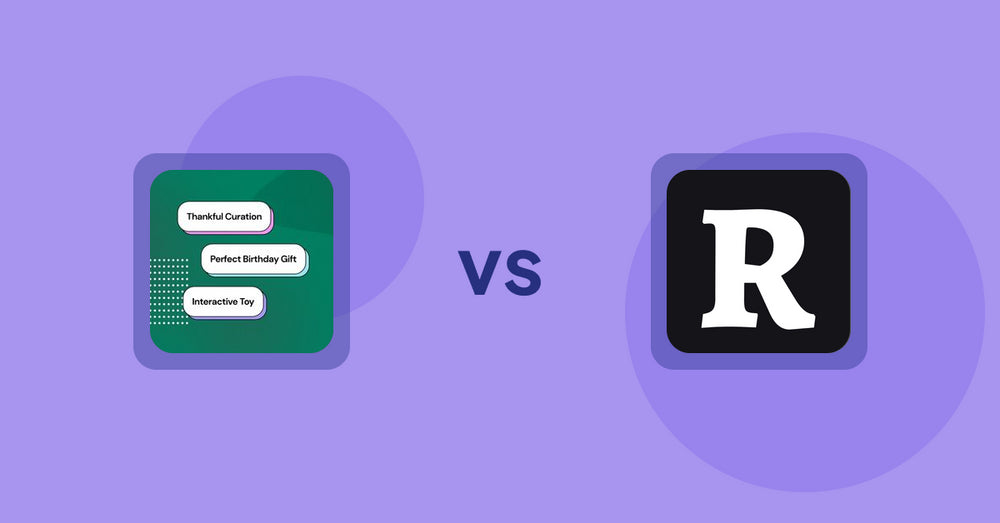
Shopify Product Display Apps: FeatureFrame ‑ Pretty Product vs. AI SEO: Top Product Features
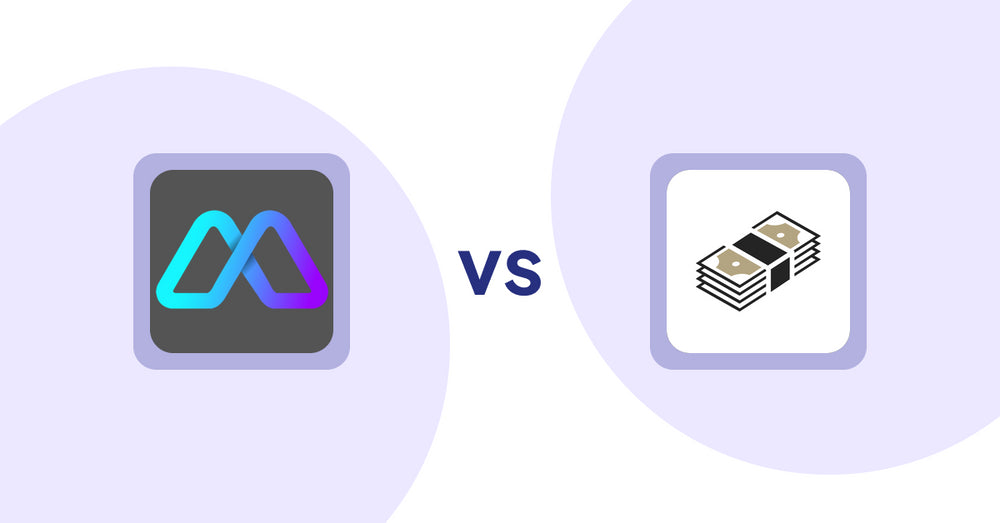
Shopify Product Display Apps: Metadrob: Create Virtual Store vs シンプルクラウドファンディング|お手軽自社クラファン
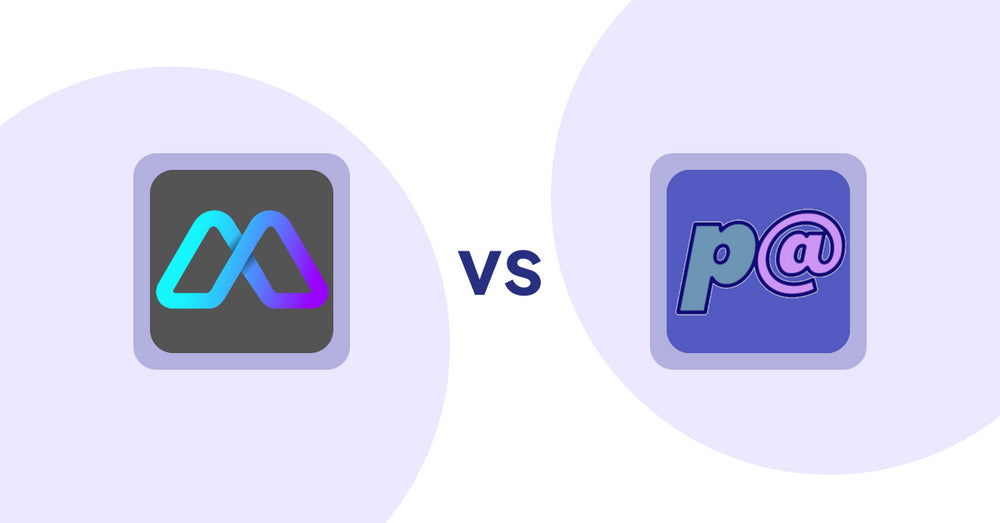
Shopify Product Display Apps: Metadrob: Create Virtual Store vs Parameterizer
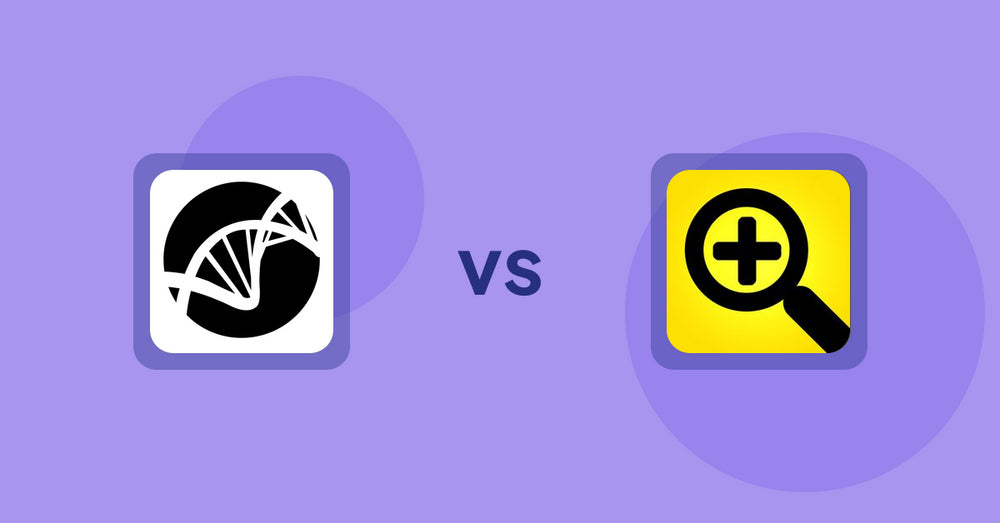
Shopify Product Display Apps: Bike Matrix vs. Fast View: Fastest Quick View
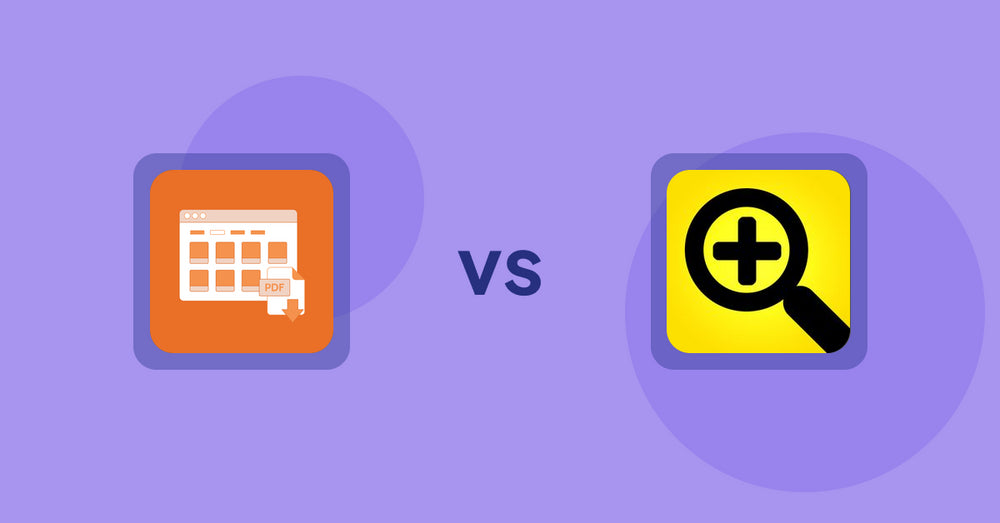
Shopify Product Display Apps: Meetanshi PDF Product Catalog vs Fast View: Fastest Quick View
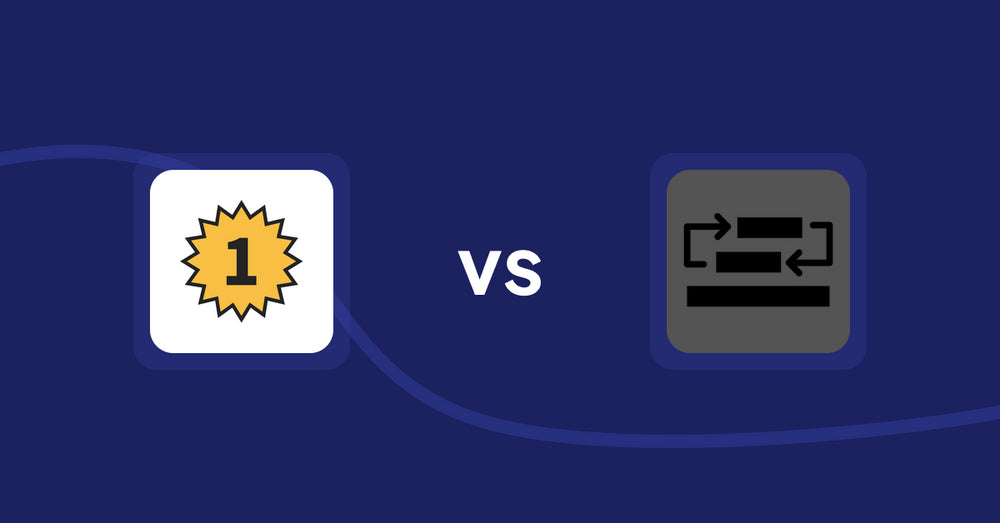
Shopify Product Display Apps: UR: Smart Ranking vs Sortyfi Collection Merchandise
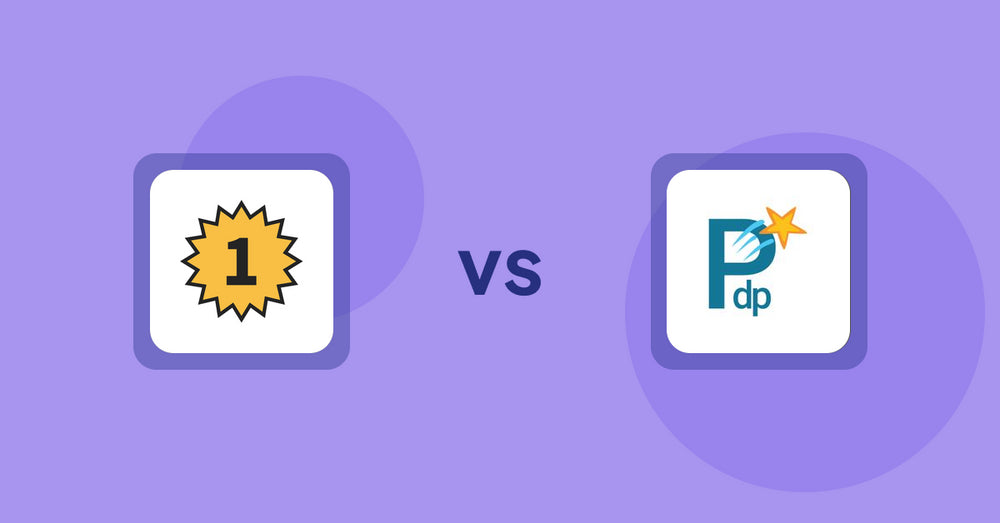
Shopify Product Display Apps: UR: Smart Ranking vs PDP Star
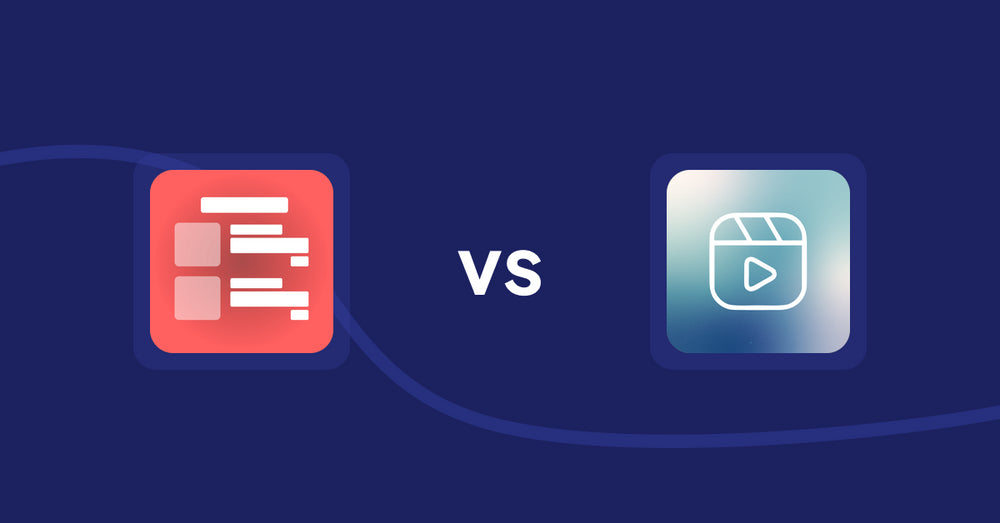
Shopify Product Display Apps: Menulog vs Reelify ‑ Shoppable Reel Video
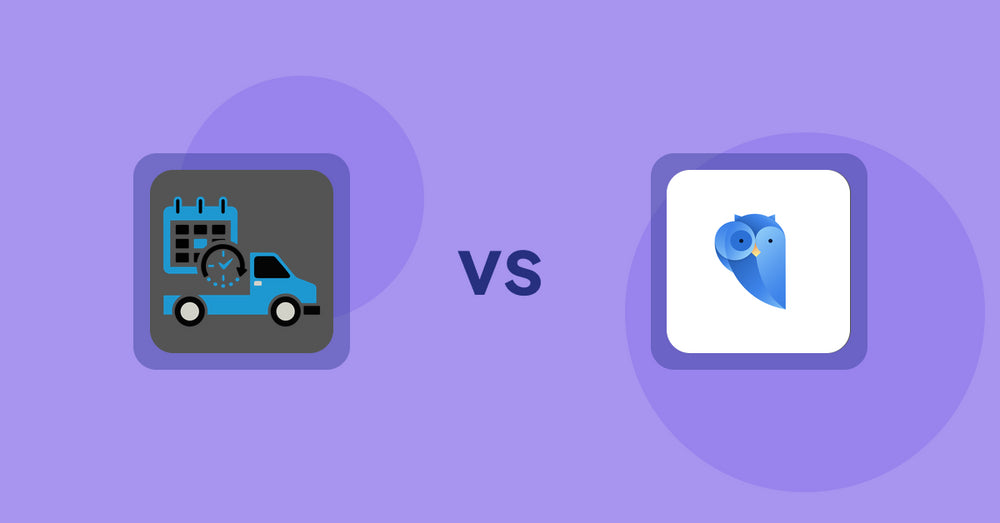
Shopify Product Display Apps: H3 Estimated Delivery vs Findify Search & Merchandise
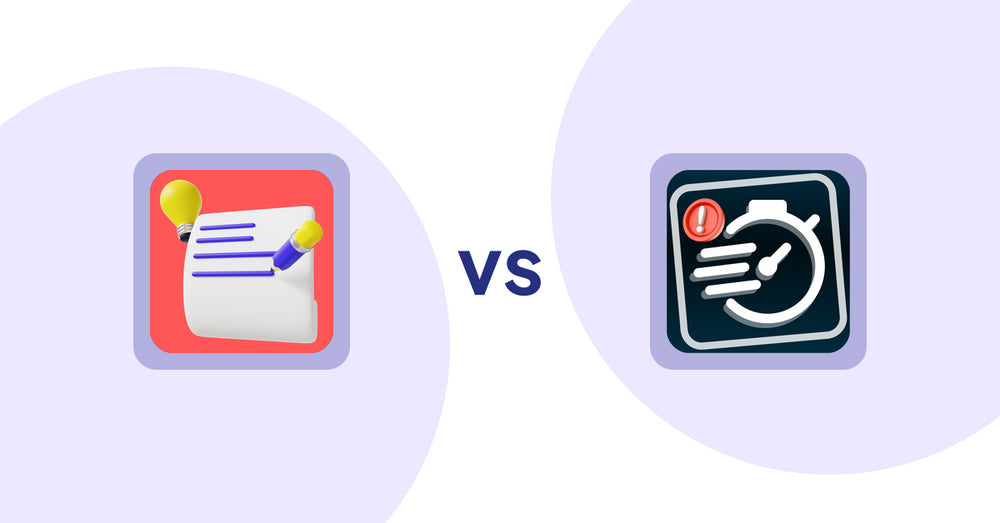
Shopify Product Display Apps: Wordo ‑ ChatGPT AI Description vs Urgency! Low Stock Counter
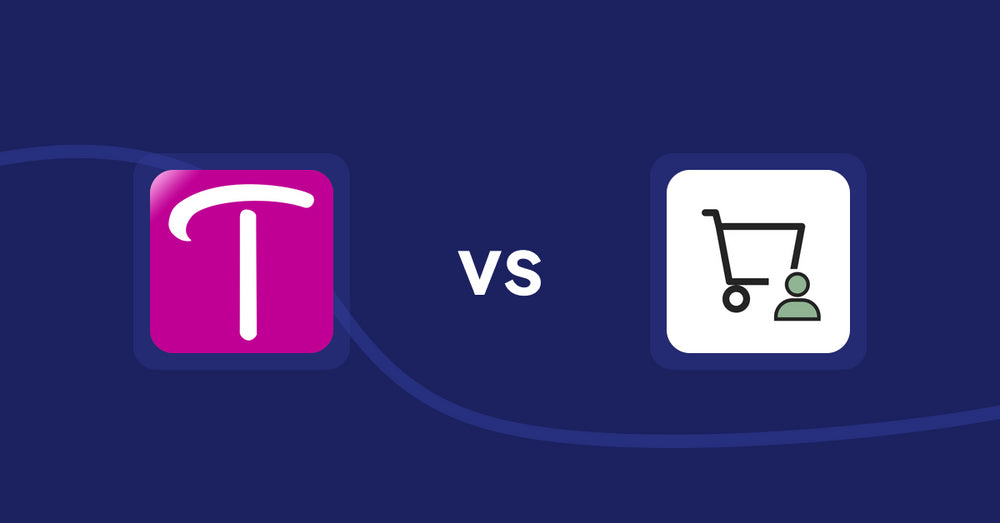
Shopify Product Display Apps: WS Transparency vs シンプル会員注文割引|お手軽ログインセール設定
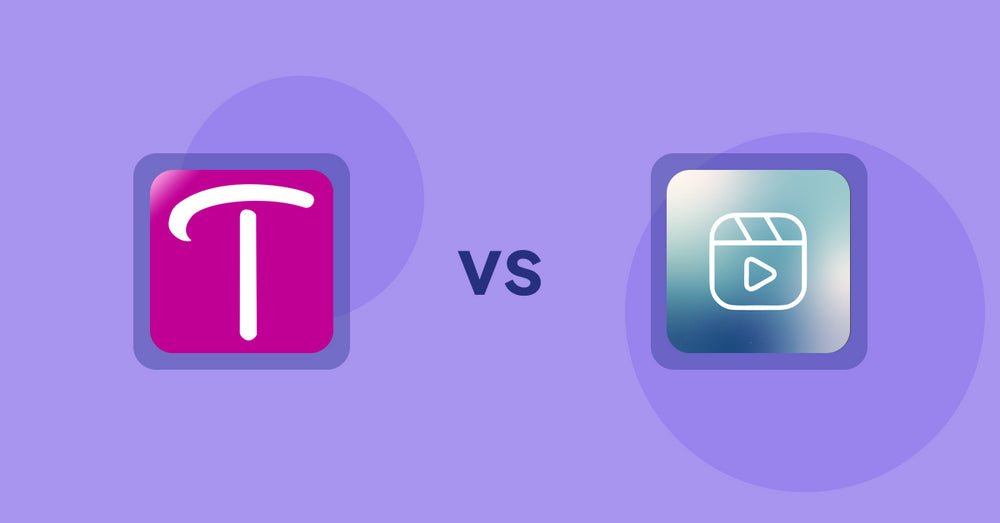
Shopify Product Display Apps: WS Transparency vs Reelify ‑ Shoppable Reel Video
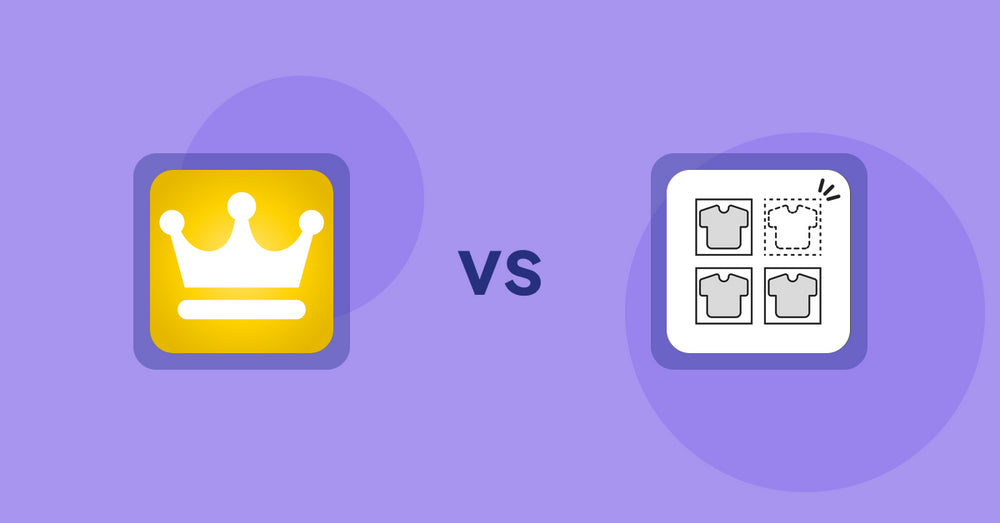
Shopify Product Display Apps: Awesome Ranking vs シンプル売り切れ非表示|在庫切れ商品の表示変更
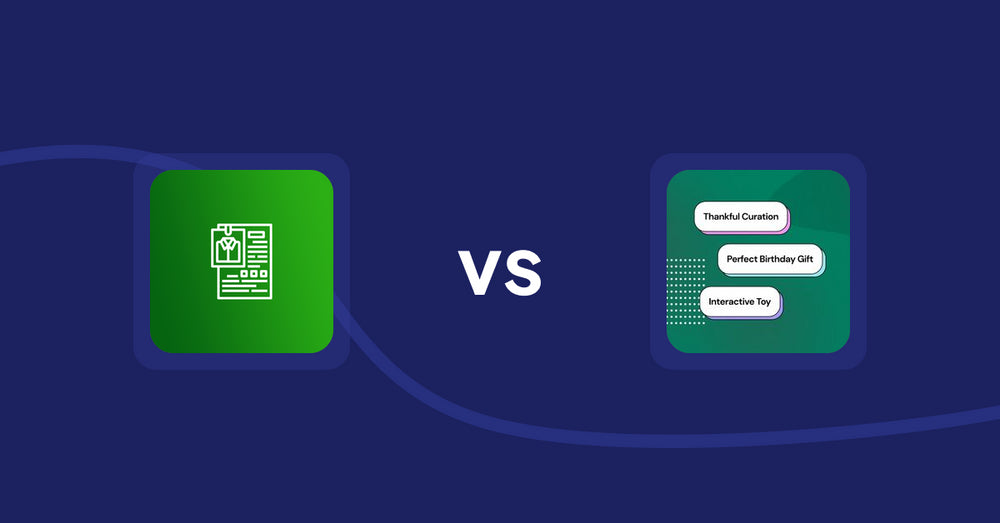
Shopify Product Display Apps: OC Product Size Chart vs FeatureFrame ‑ Pretty Product
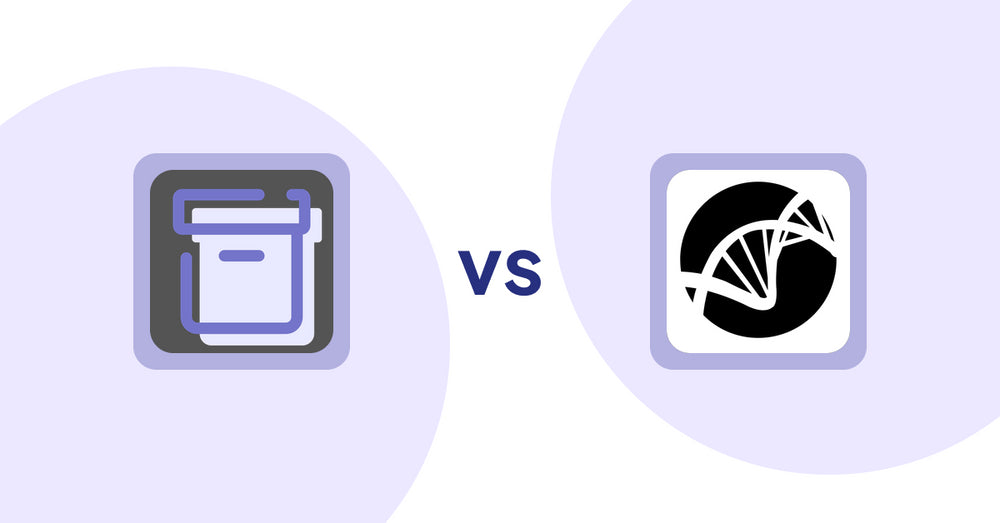
Shopify Product Display Apps: Shelfify vs Bike Matrix
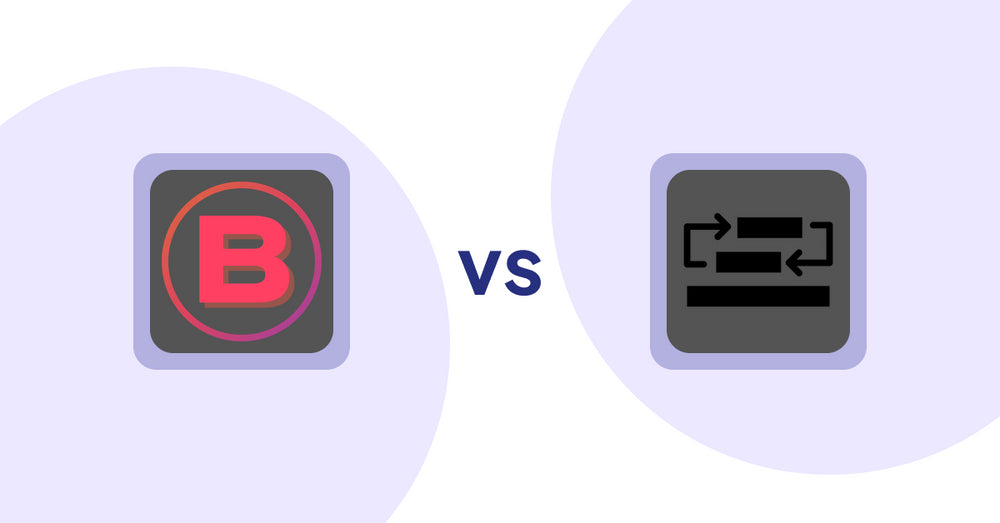
Shopify Product Display Apps: Banter Stories vs Sortyfi Collection Merchandise
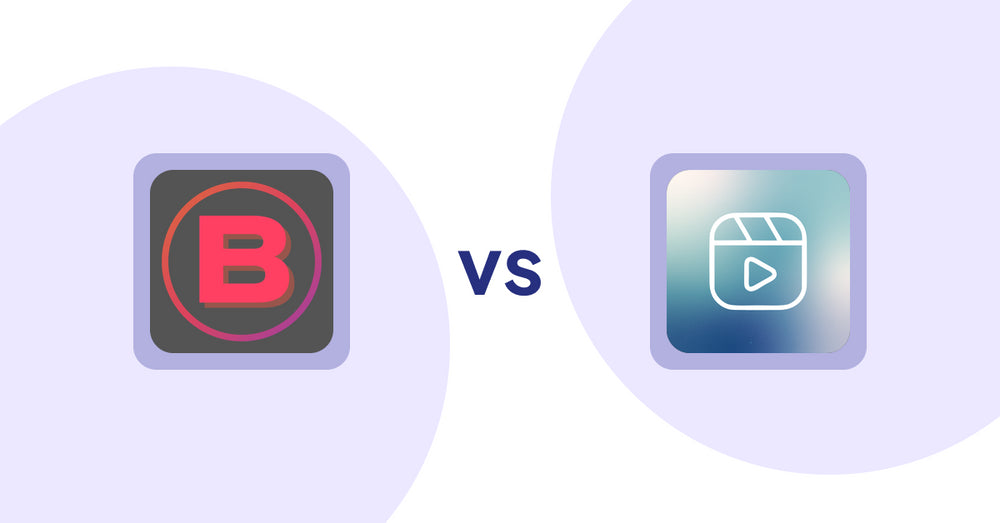
Shopify Product Display Apps: Banter Stories vs. Reelify ‑ Shoppable Reel Video
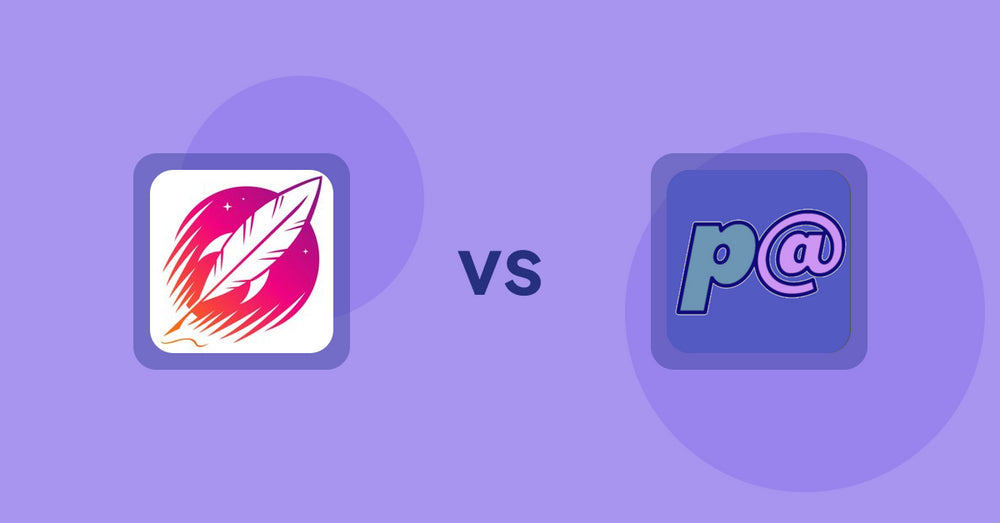
Shopify Product Display Apps: Wordsmith: Content Generator vs Parameterizer

Shopify Product Display Apps: Wordsmith: Content Generator vs Reelify ‑ Shoppable Reel Video
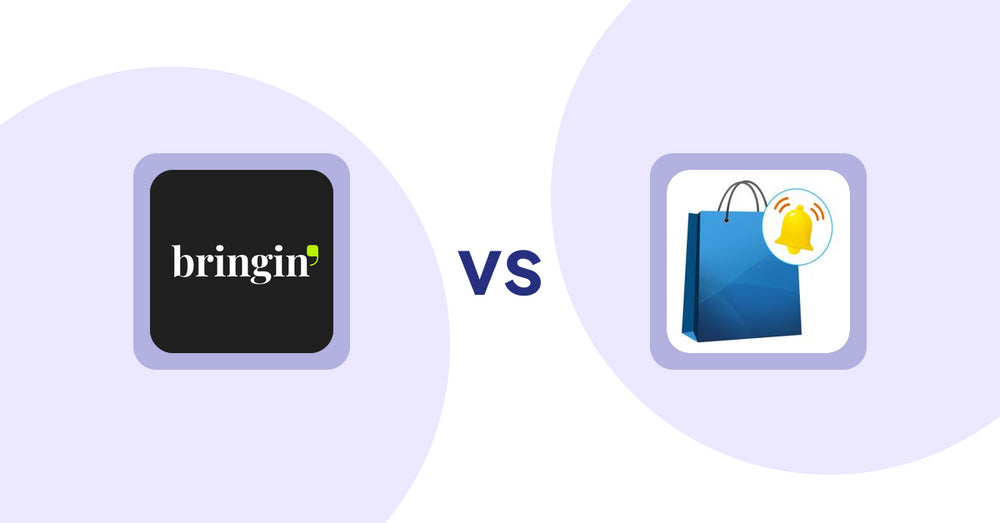
Shopify Product Display Apps: Bringin vs CartBar ‑ Product Purchase Bar
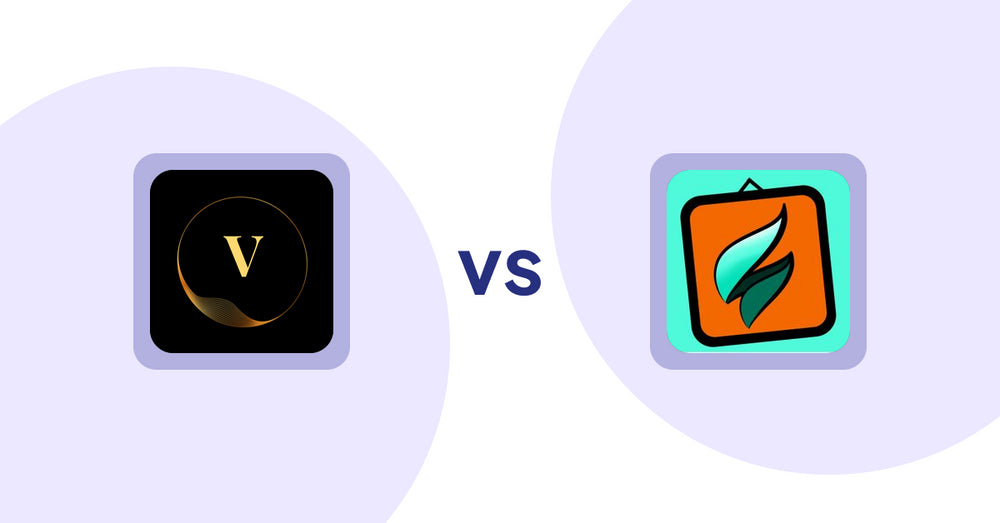
Shopify Product Display Apps: ProductTube vs SMART ‑ Art Product Builder
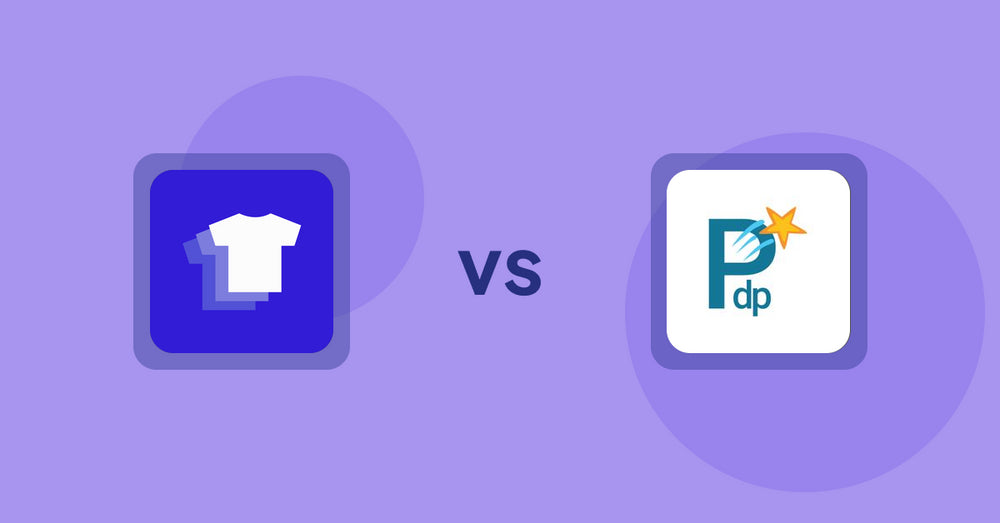
Shopify Product Display Apps: Xpander vs PDP Star
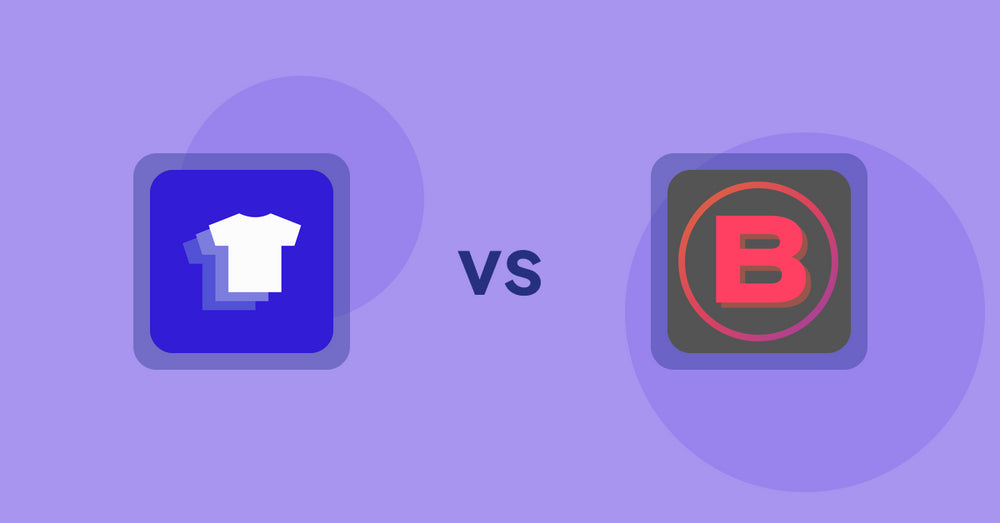
Shopify Product Display Apps: Xpander vs Banter Stories
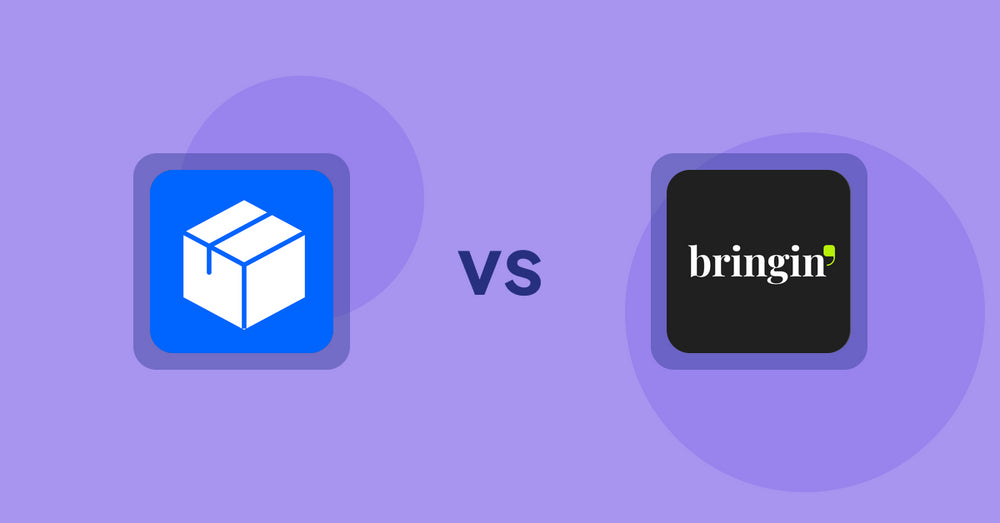
Shopify Product Display Apps: Wonderful Widgets vs Bringin
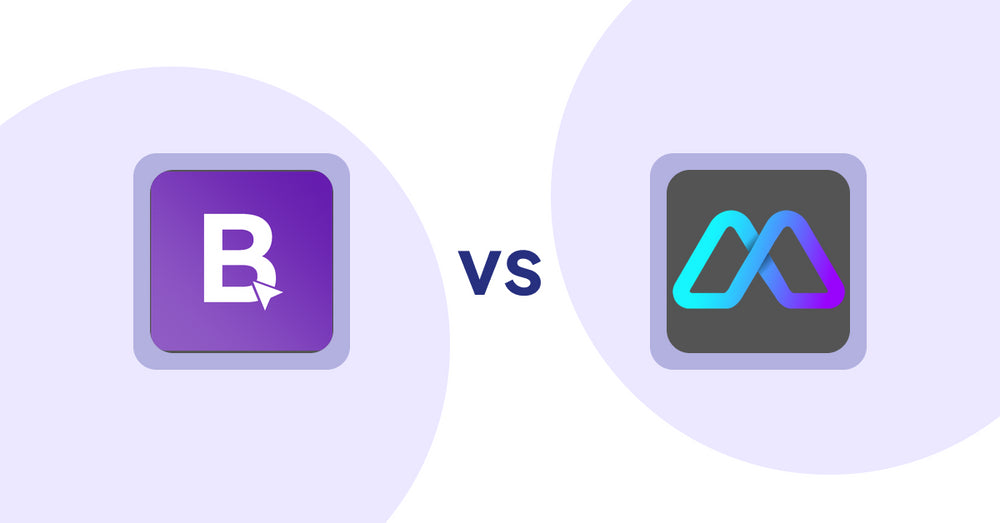
Shopify Product Display Apps: BookE - Rent Property & Service vs Metadrob: Create Virtual Store
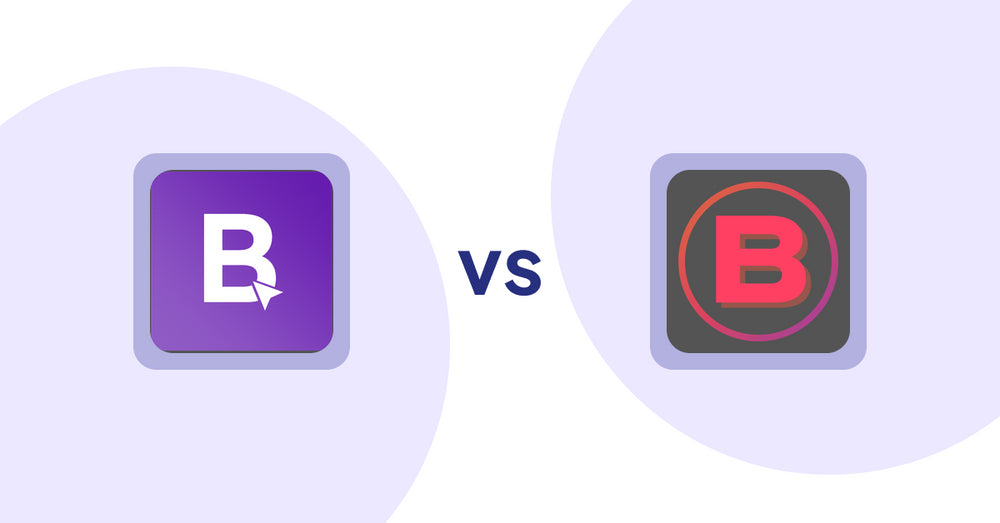
Shopify Product Display Apps: BookE ‑Rent Property & Service vs. Banter Stories
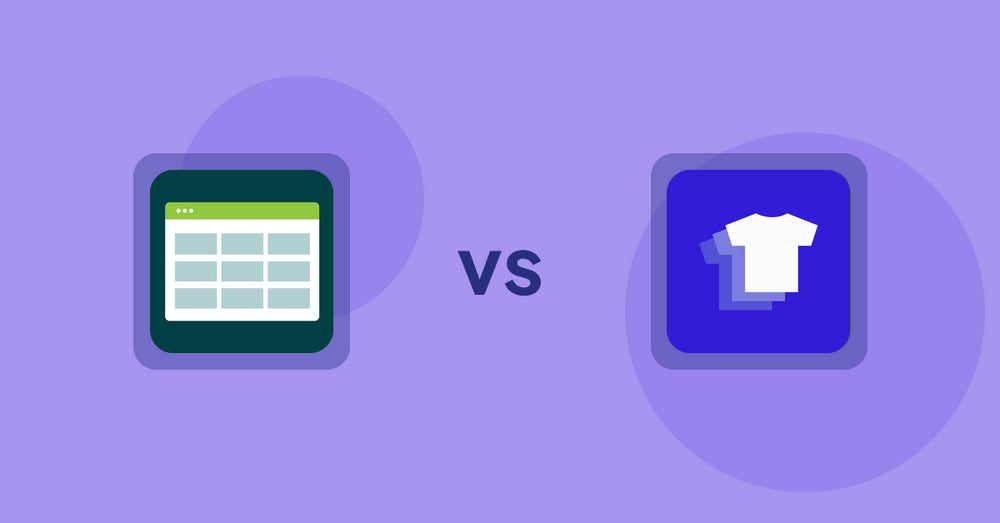
Shopify Product Display Apps: Product Table vs. Xpander
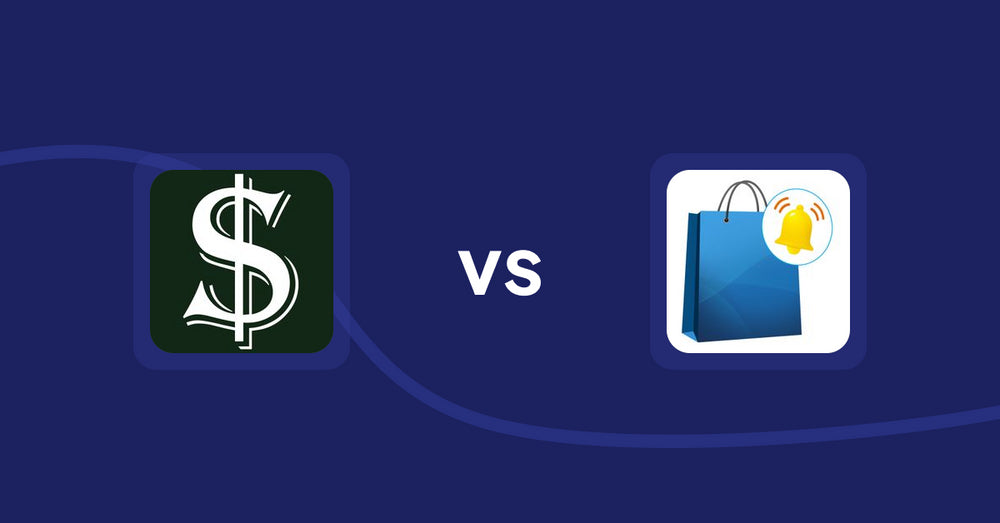
Shopify Product Display Apps: Selling Fast vs CartBar ‑ Product Purchase Bar
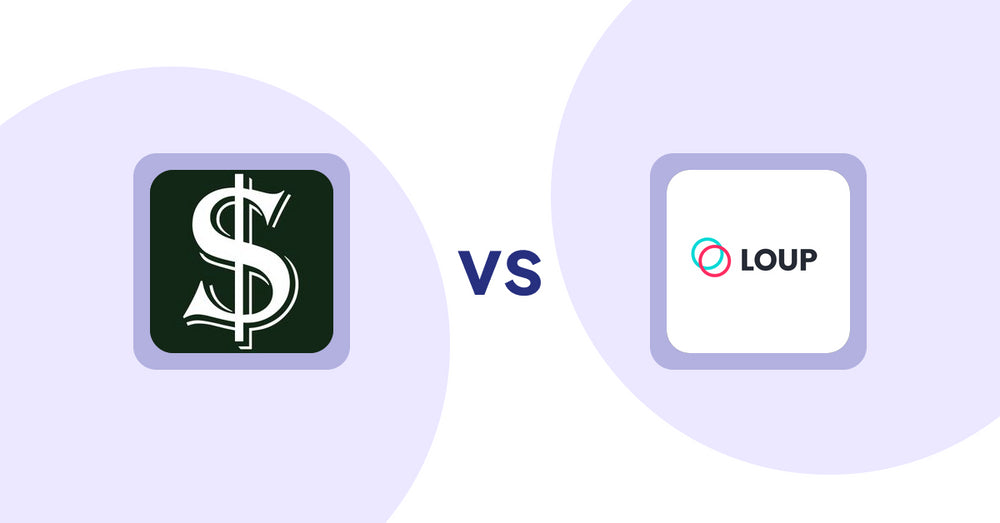
Shopify Product Display Apps: Selling Fast vs. Loup: Sell on Instagram
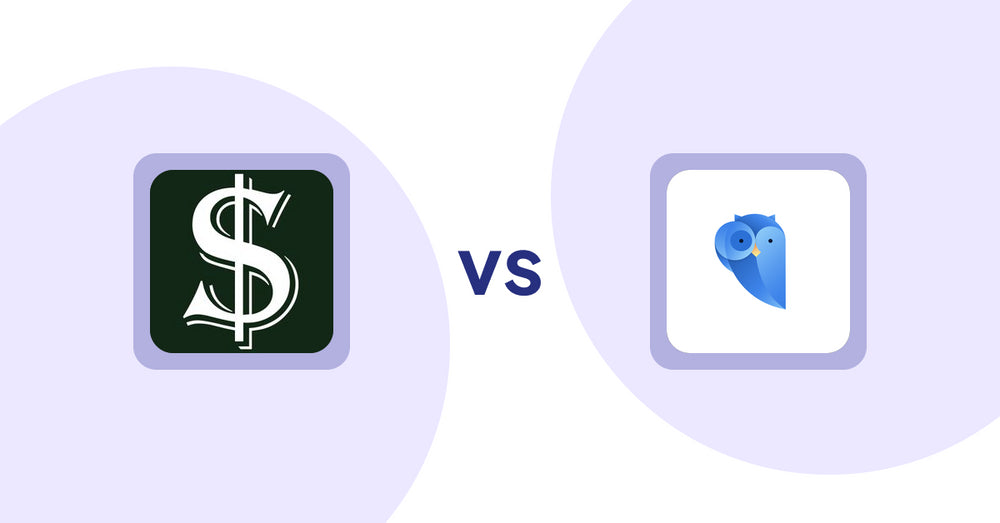
Shopify Product Display Apps: Selling Fast vs. Findify Search & Merchandise
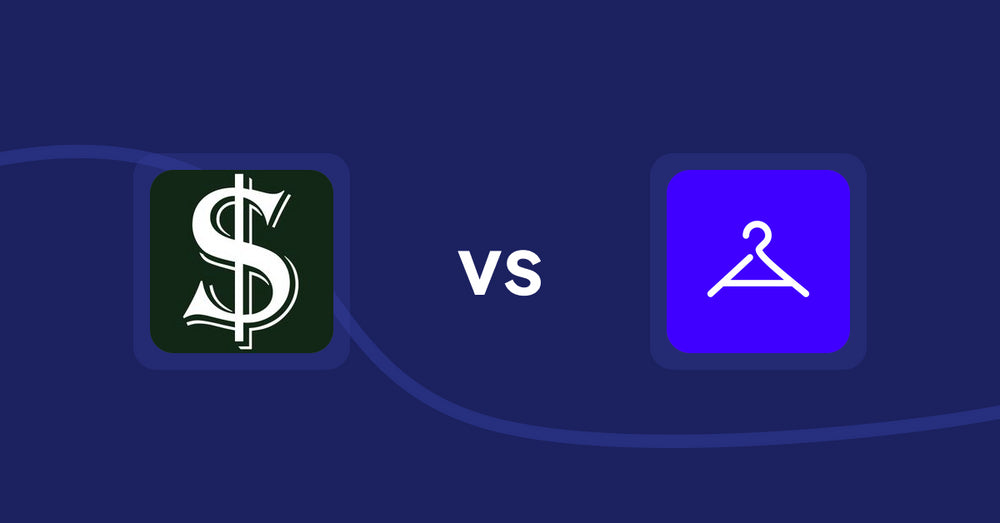
Shopify Product Display Apps: Selling Fast vs. Aiuta
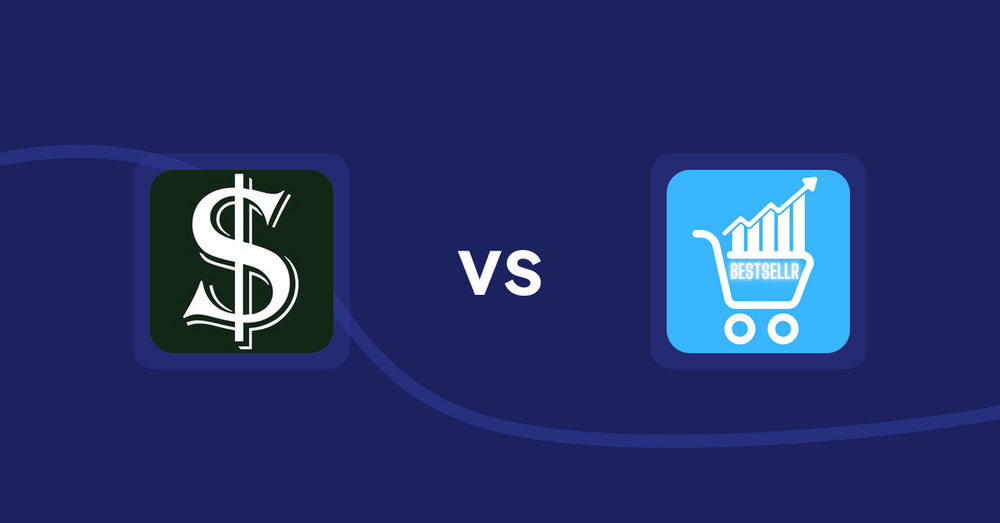
Shopify Product Display Apps: Selling Fast vs Bestsellr
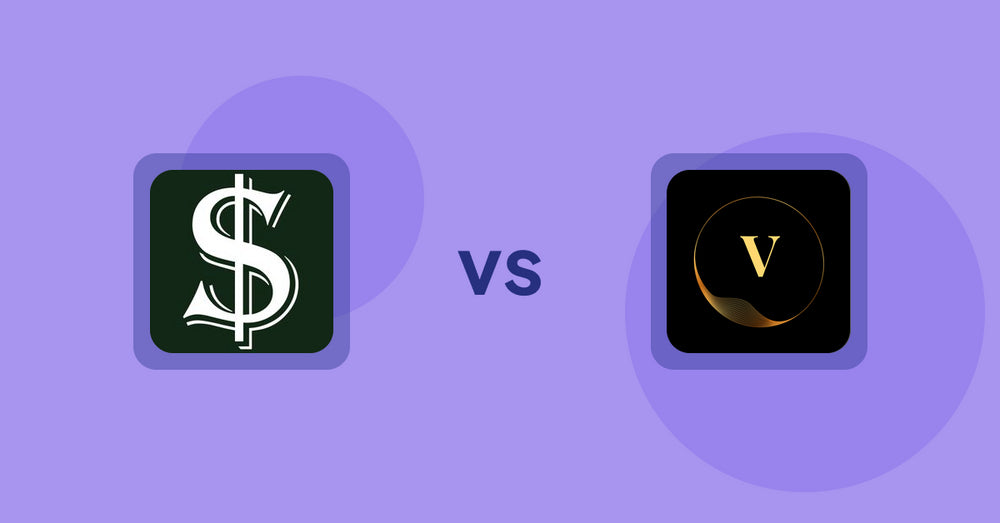
Shopify Product Display Apps: Selling Fast vs ProductTube
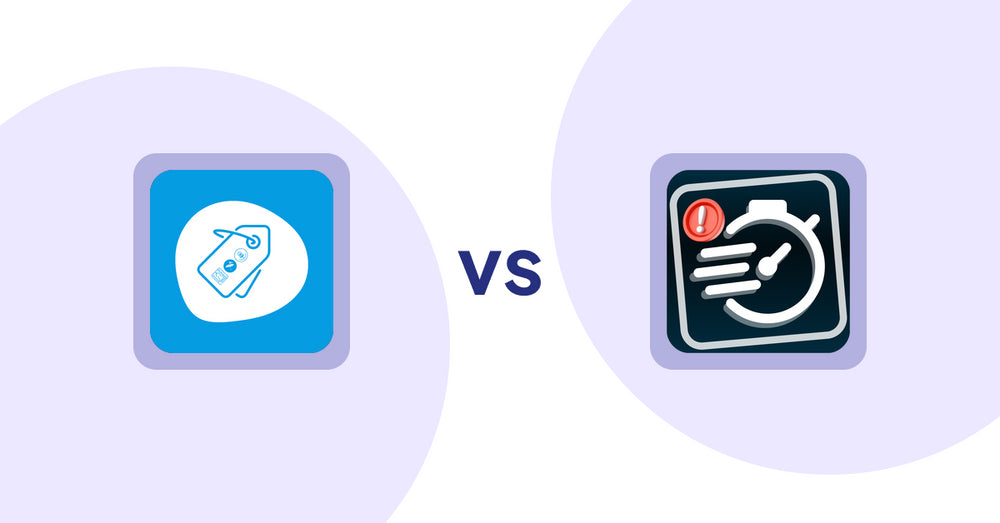
Shopify Product Display Apps: Extendons Product Tag Images vs Urgency! Low Stock Counter
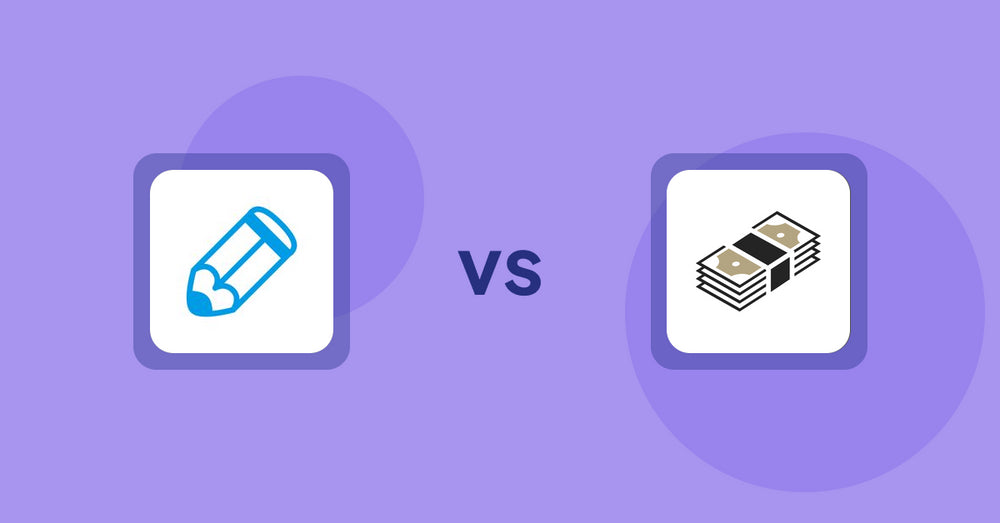
Shopify Product Display Apps: Writer Sofia vs シンプルクラウドファンディング|お手軽自社クラファン
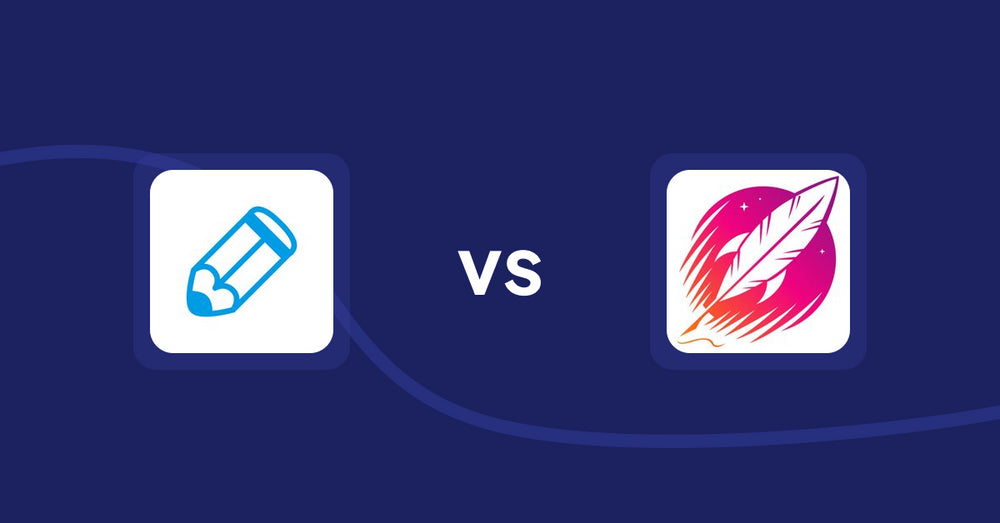
Shopify Product Display Apps: Writer Sofia vs Wordsmith: Content Generator
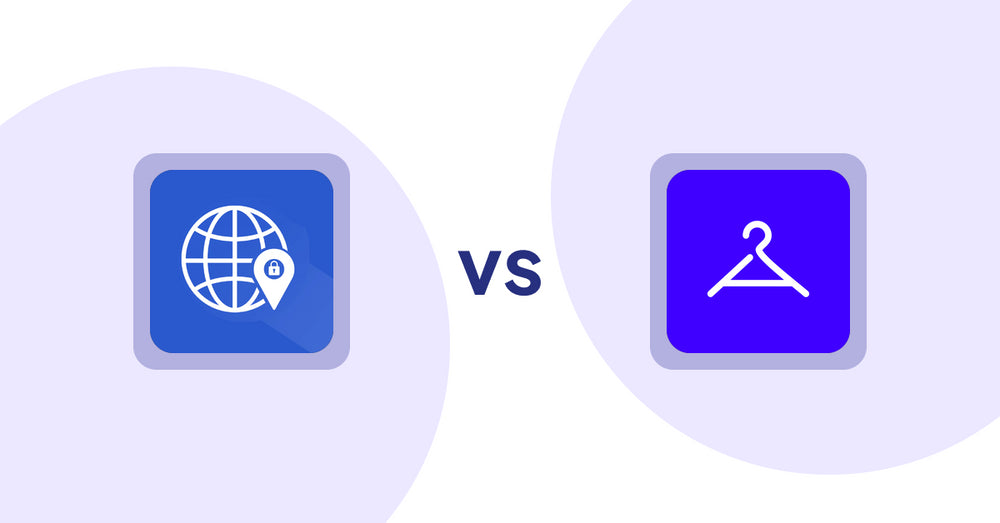
Shopify Product Display Apps: Addify ‑ Country Restrictions vs Aiuta
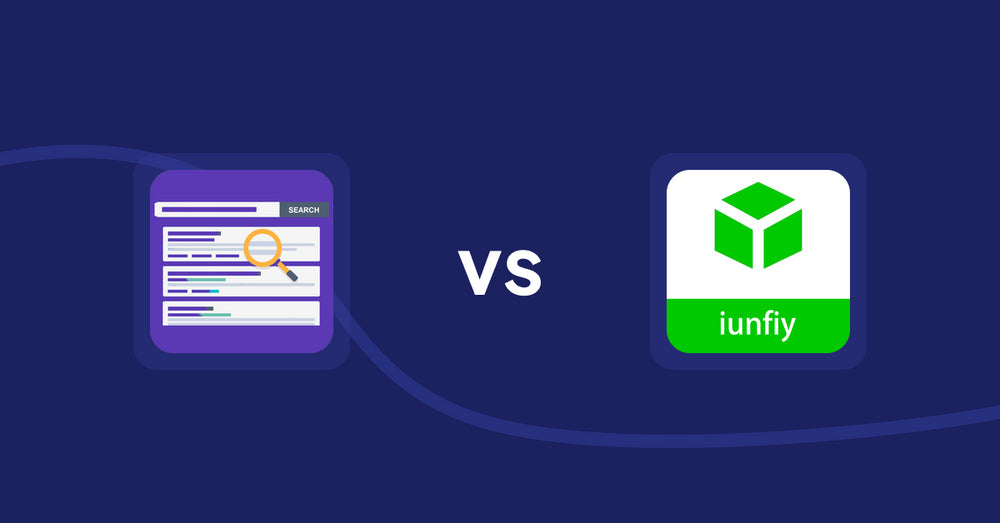
Shopify Product Display Apps: Spark AI Products Description vs iunfiy • Related Products
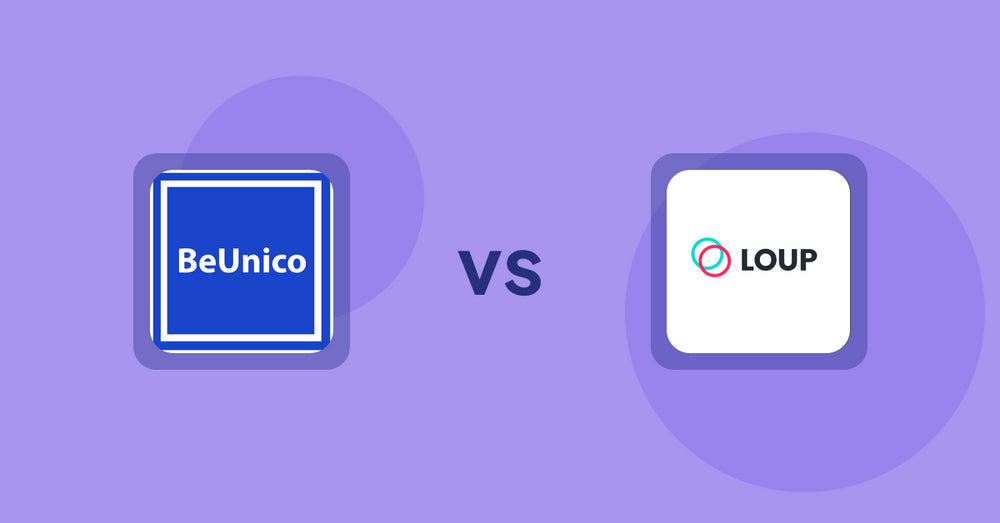
Shopify Product Display Apps: BeUnico vs Loup: Sell on Instagram
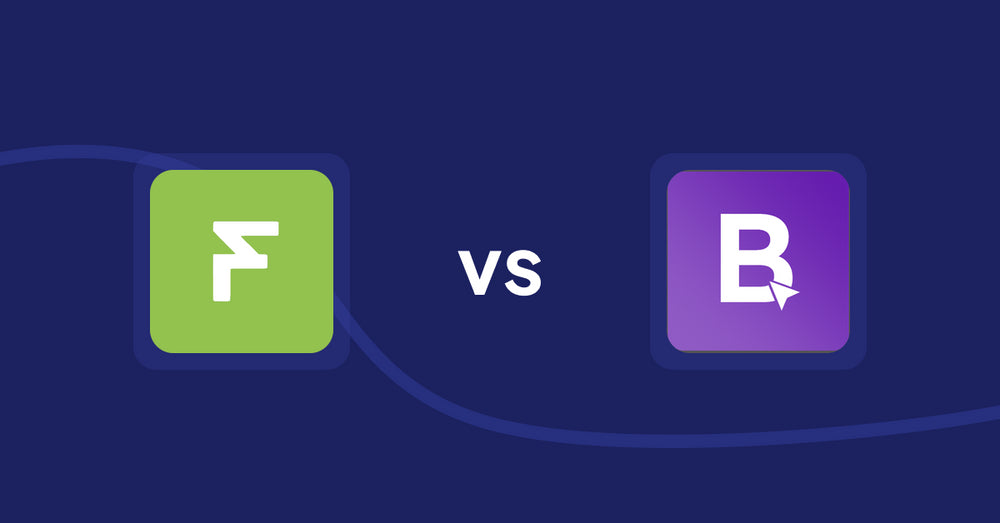
Shopify Product Display Apps: Easy Estimate Shipping vs BookE ‑Rent Property & Service
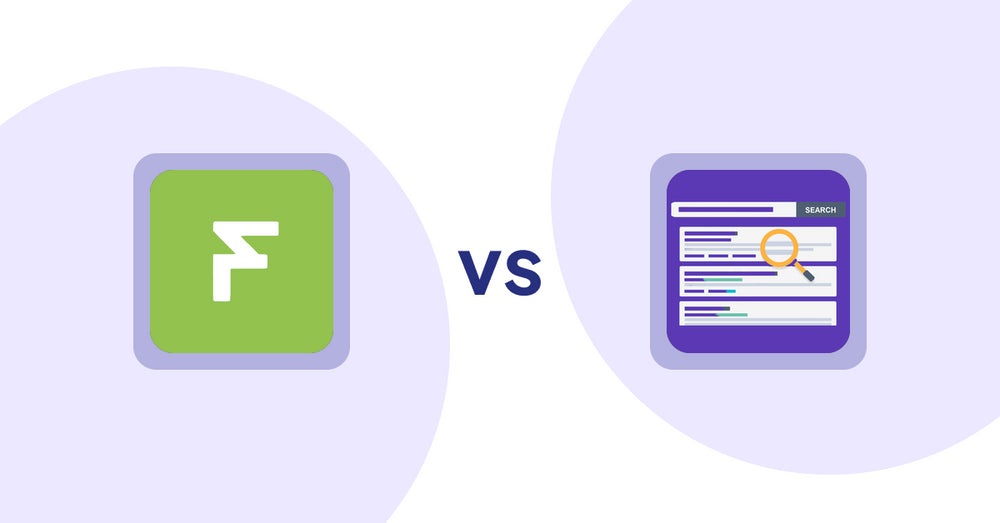
Shopify Product Display Apps: Easy Estimate Shipping vs. Spark AI Products Description
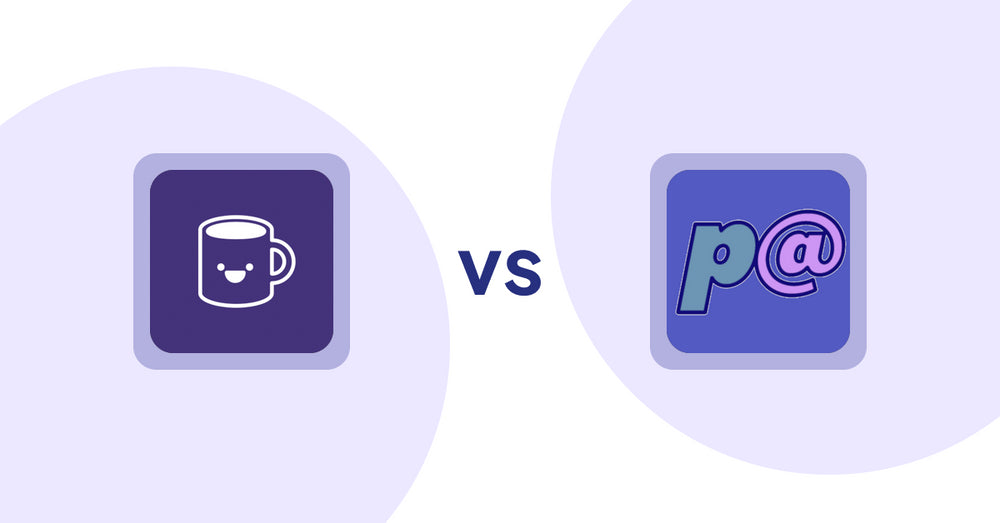
Shopify Product Display Apps: Mugshot Bot vs Parameterizer
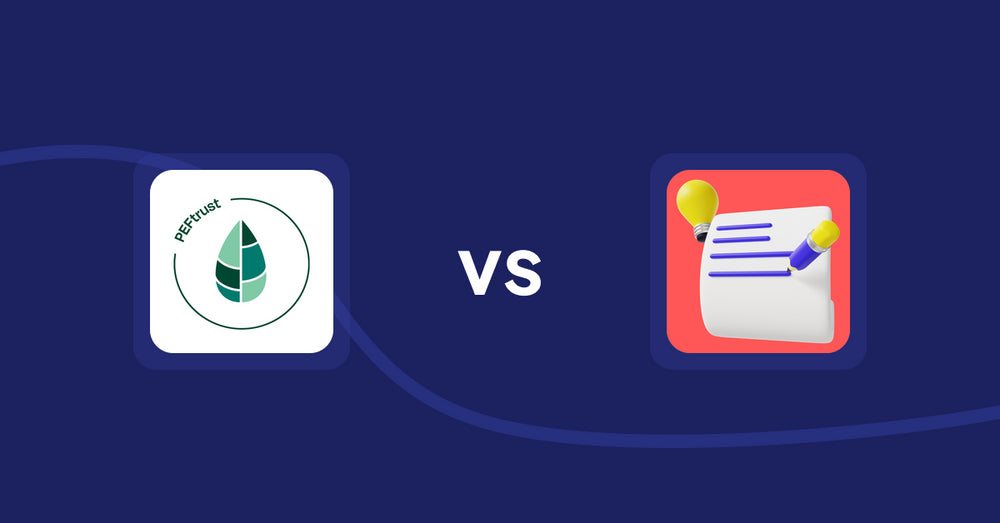
Shopify Product Display Apps: Peftrust vs. Wordo ‑ ChatGPT AI Description
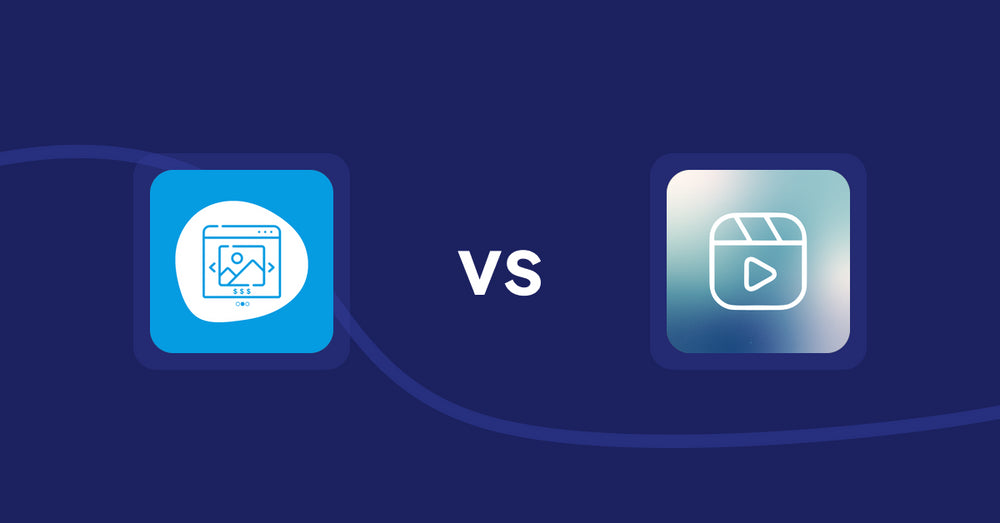
Shopify Product Display Apps: Quick Product Navigator Slide vs Reelify ‑ Shoppable Reel Video
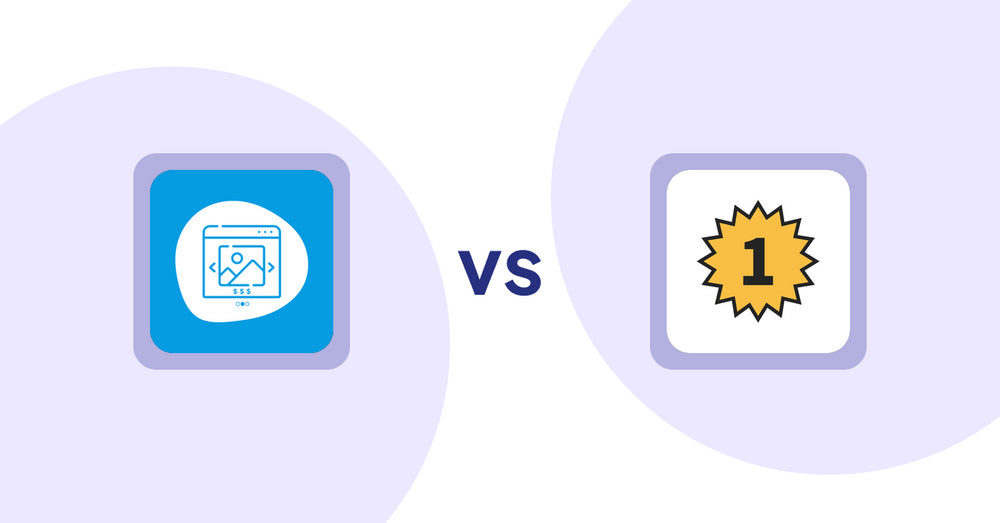
Shopify Product Display Apps: Quick Product Navigator Slide vs. UR: Smart Ranking
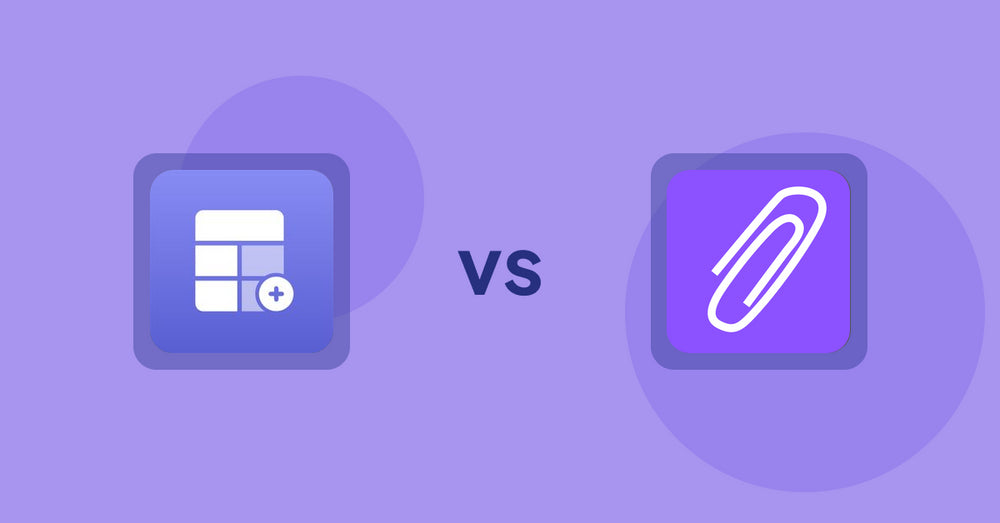
Shopify Product Display Apps: Eazy Specification Tags Table vs Agile Attachments
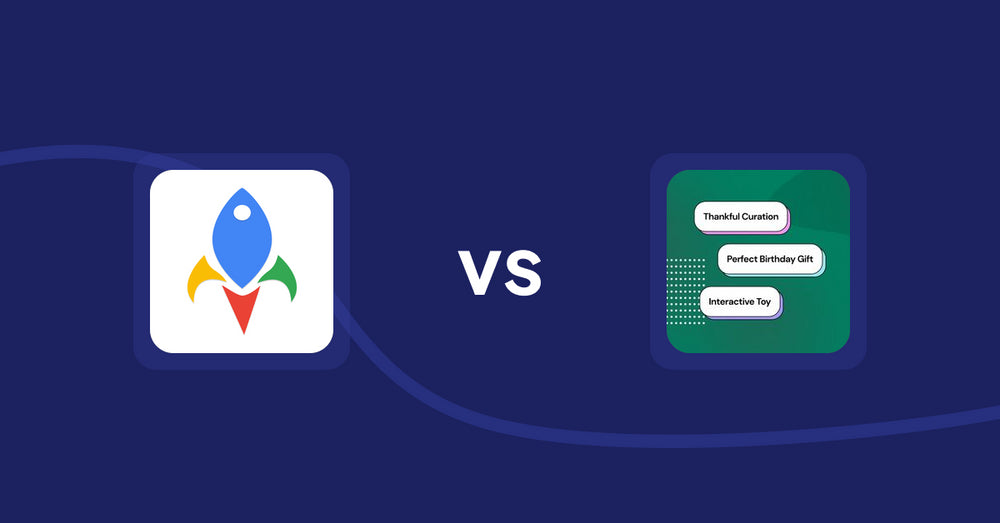
Shopify Product Display Apps: Jedi Back In Stock Admin Alert vs FeatureFrame ‑ Pretty Product
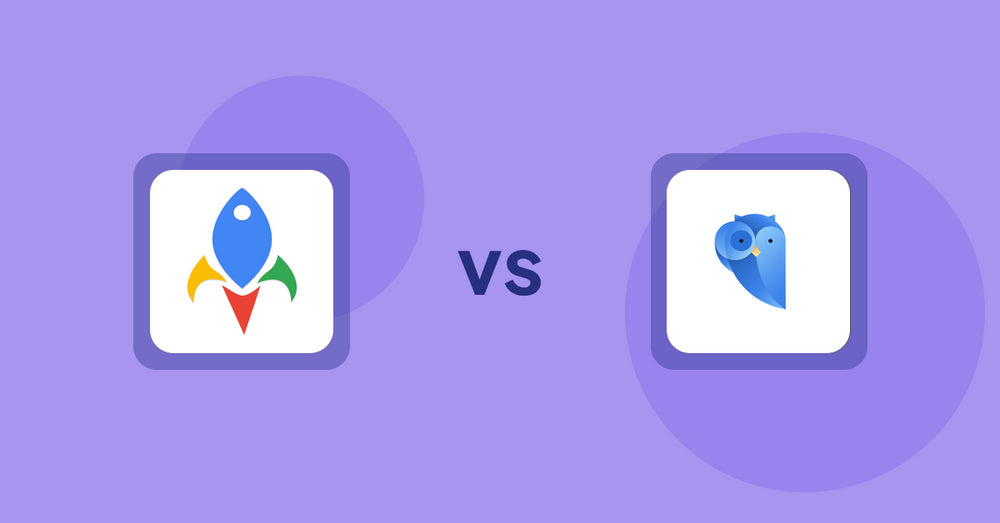
Shopify Product Display Apps: Jedi Back In Stock Admin Alert vs. Findify Search & Merchandise
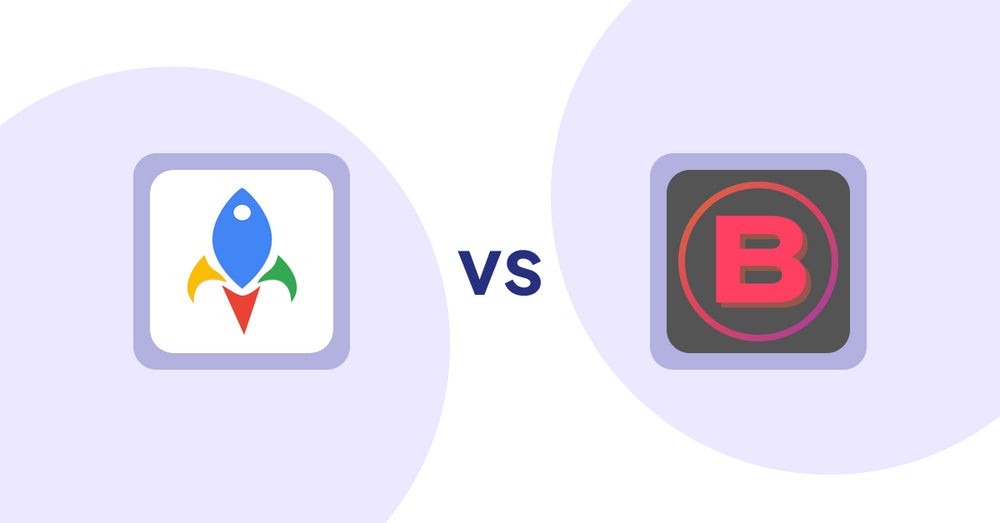
Shopify Product Display Apps: Jedi Back In Stock Admin Alert vs Banter Stories
